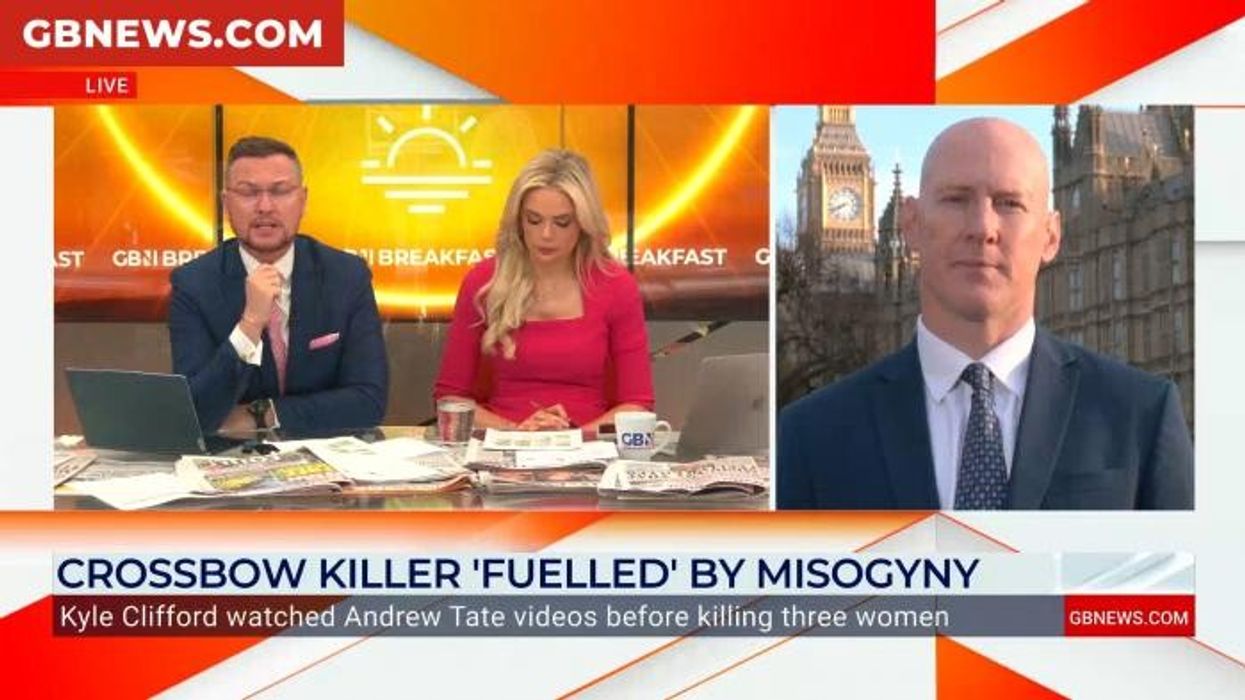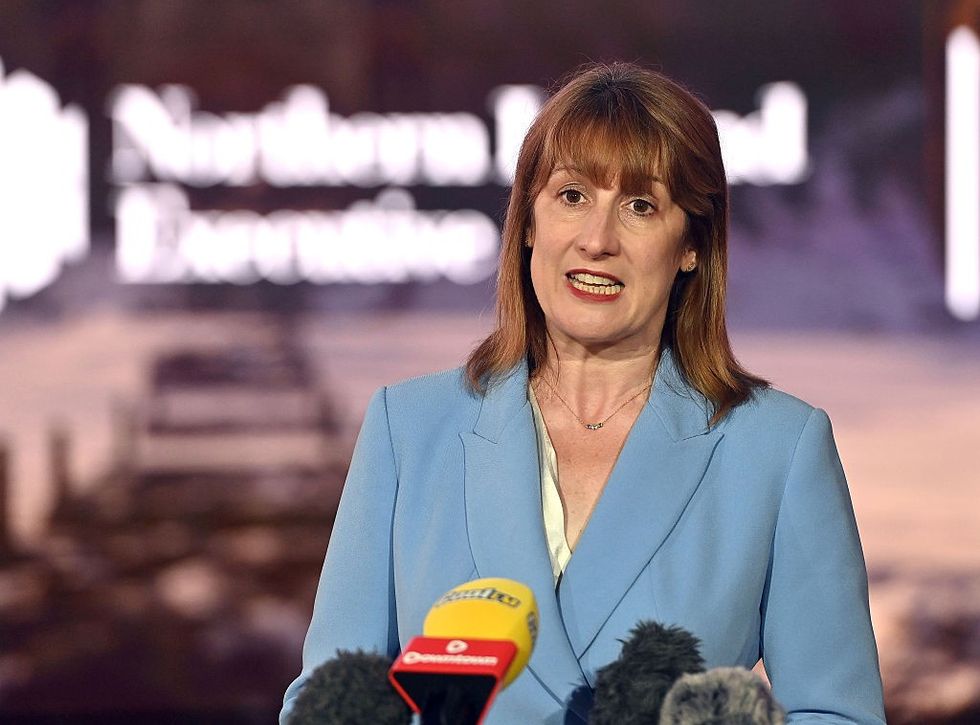Rachel Reeves eyes lifetime cap on tax-free gifts in fresh inheritance tax raid

Kieran Mullan MP - Farmers Protest Inheritance Tax & Labour’s Economic Impact |
GBNEWS

The Treasury is looking at ways to raise more money from inheritance tax ahead of the autumn Budget
Don't Miss
Most Read
Latest
Families could soon face a new lifetime cap on how much they can give their children and loved ones without paying inheritance tax.
At the moment, there's no limit to the amount you can gift tax-free during your lifetime, but under plans being considered by the Treasury, this could change.
The Government is looking at possible changes to the way people can give away wealth or assets before they die to reduce inheritance tax. One option on the table is a lifetime cap on how much can be gifted tax-free.
**ARE YOU READING THIS ON OUR APP? DOWNLOAD NOW FOR THE BEST GB NEWS EXPERIENCE**
Currently, gifts made more than seven years before someone's death are free from inheritance tax.
Gifts made between three and seven years before death are taxed on a sliding "taper relief" scale, with the rate dropping from 32 per cent to eight per cent the further away from death the gift is made.
Under new plans, a lifetime limit could be introduced to cap the total amount of money or assets a person can give away, even if done many years before death.
The Treasury is also reviewing the taper rate rules, according to reports. Under the new system, the Treasury could claim a slice of those funds regardless of when they were given.
On top of that, another rise to capital gains tax is being explored, which could affect anyone selling shares, property that isn’t their main home, or other investments, though special allowances may remain for those investing in UK businesses.
The proposals are part of Chancellor Rachel Reeves's plans to plug a £50billion hole in the public finances ahead of the autumn Budget.
Experts say Reeves will need to find tens of billions of pounds a year to stick to her debt control rules. The National Institute of Economic and Social Research estimates she needs £40billion a year, plus another £10billion to give herself some financial breathing room.
A Treasury source said that with much of Britain's wealth tied up in property and other assets that have risen sharply in value, the Government is looking for ways to raise money from inheritances from those who can afford it.

Experts say Reeves will need to find tens of billions of pounds a year to stick to her debt control rules
|getty
A source with knowledge of the work told the Guardian: "With so much wealth stored in assets like houses that have shot up in value, we have to find ways to better tap into the inheritances of those who can afford to contribute more.
"It’s hard to make sure these taxes don’t end up with loopholes that undermine their purpose. But we are trying to work out what revenue might be raised and how to ensure it’s a fair approach."
The source added: "IHT can raise more, and even if we do nothing, it will raise more money as the threshold for paying it stays frozen. But we have to look at the levers for taxing wealth if the aim of the Government is to avoid hitting earnings from work as much as possible."
Sir Mel Stride, the Conservative shadow chancellor, has hit out at the plans, saying people who have built up savings through hard work shouldn't be hit with extra taxes when passing money to their families.
 The standard inheritance tax rate is 40 per cent above the £325,000 threshold, which many Britons are being pulled into paying | GETTY
The standard inheritance tax rate is 40 per cent above the £325,000 threshold, which many Britons are being pulled into paying | GETTYHe said: "Tax rises are coming to paper over the cracks of the Chancellor's economic mismanagement. Nothing is safe under Labour not your job, your business, your farm, your savings or your pension."
The shadow chancellor has accused Reeves of "taxing your family's future to fund her failure", warning that Labour's plans would punish people trying to provide for their loved ones.
His remarks highlight Conservative opposition to what they see as an attack on family wealth and long-term financial planning between generations.
Right now, individuals can give unlimited sums or assets to family or friends without paying inheritance tax, as long as they live for seven years after making the gift.
If the donor dies within seven years, the gift is taxed on a sliding scale, with the rate reducing the longer the gap between the gift and death. Transfers occurring within three years of death incur the full 40 per cent inheritance tax rate.
Revenue from inheritance tax has surged from approximately £3.75billion to £7.5billion annually over the past decade, driven partly by sustained property price growth.
The Office for Budget Responsibility projects receipts will reach £14.3 billion by 2030.
Labour has maintained its pledge to avoid raising income tax, National Insurance for employees, VAT and corporation tax rates, alongside broader commitments to protect working people from tax increases.
These constraints have directed attention towards wealth-based taxation options.
 Less than four per cent of estates paid inheritance tax in 2020-21, the latest HMRC figures show | GETTY
Less than four per cent of estates paid inheritance tax in 2020-21, the latest HMRC figures show | GETTYThe Treasury emphasised that economic growth remains the primary method for strengthening public finances, citing planning reforms projected to expand the economy by £6.8 billion and reduce borrowing by £3.4 billion.
Officials stressed that fiscal adjustments extend beyond taxation and spending modifications.
A Treasury spokesman confirmed the Government's commitment to maintaining low taxes for working people, referencing the autumn Budget's protection of payslips through unchanged income tax rates, employee National Insurance and VAT.
No final decisions have been taken on the inheritance tax proposals currently under review.
More From GB News










